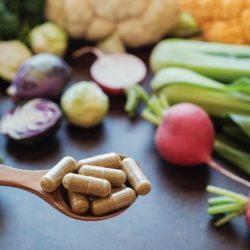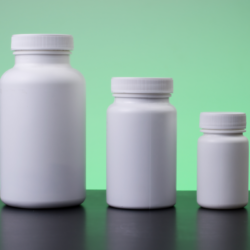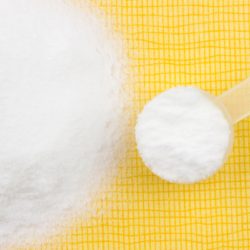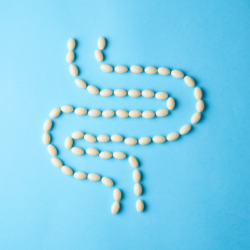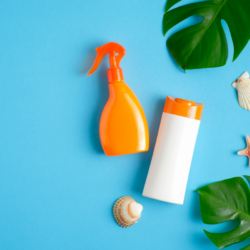At a time whenviruses seem more persistent and impactful than ever, getting back into shape after a viral illness has become a major public and personal health issue. Take Pauline, for example, who recently suffered a severe cold and is now struggling to regain her energy and vitality. Like her, many of us are facing this challenge in the current climate, where cold winters, confinement and close quarters encourage the transmission of viruses.
Faced with this situation, it becomes crucial to stimulate our immunity, that advanced guard of our health, capable of protecting us and helping us to recover more quickly. With this in mind, Pauline consulted a micro-nutritionist, who gave her a set of recommendations for boosting her immune system. From introducing protein at breakfast to stimulate dopamine to consuming vitamin C and zinc to strengthen her natural defences, each piece of advice is a building block in her recovery.
The approach proposed here is not limited to diet; it also encompasses healthy lifestyle habits such as restful sleep and managingexposure to screens. What’s more, it extends to natural solutions, with the use of plants such as ginseng and blackcurrant, renowned for their immuno-stimulant properties.
In this article, we’ll explore these different strategies to help anyone bounce back after a viral attack, by boosting their immune system naturally and effectively. We’ll see how a holistic and integrated approach, focusing on nutrition, sleep and the judicious use of supplements, can be the key to rapidly regaining fitness and vitality.
How can you boost your immunity and get back into shape after a virus?
Pauline has caught a bad cold and hasn’t been able to get over it. It has to be said that during the winter, confinement, close quarters and low temperatures encourage the transmission and persistence of viruses
transmission and persistence of viruses. She needs to boost her immunity!
To help her regain her vitality, her micro-nutritionist has advised her to :
- Stimulate dopamine to get the morning off to a good start and avoid bouts of tiredness by introducing a protein at breakfast (for example eggs, ham, fromage blanc, petits suisses, cheese, silky tofu)..
cheese, silky tofu).. - Fill up on vitamin C by eating a piece of fruit such as kiwi or orange, and why not add a blackcurrant coulis to your fromage blanc.
- At the weekend, think about a morning smoothie.
- For the rest of the day, the most important thing is not to skip meals and to eat a portion of cereals and/or pulses, protein, green vegetables and fruit each time.
- For a snack, try dried fruit such as dried apricots or figs, and a handful of almonds or walnuts
or walnuts, in addition to the usual.
A micro-nutritional boost to boost immunity
To restore the intestinal flora damaged by taking antibiotics, aprobiotic “boost” will be most welcome!
Recharge your batteries with a good night’s sleep:
- To make it easier to fall asleep, it’s best to limit the intake of tea, coffee, cola, tobacco or alcohol from late afternoon onwards.
- Exposure to screens (computers, video games) just before sleep alters the secretion of melatonin, increasing the level of wakefulness and delaying sleep.
To get the most out of life on your plate, let’s put our trust in our plant allies
To restore energy and boost immunity, a combination of ginseng and blackcurrant in the form of fluid plant extracts is particularly recommended.
Ginseng* has immune-boosting properties and acts as an intellectual and physical stimulant.
Blackcurrant, on the other hand, acts more on the body’s defence mechanisms.
*Not recommended for children under 12
How can I best protect my children this winter?
Every winter, it’s the same story Pauline and Valentin suffer from one cold, strep throat and gastro..
This year, it’s decided, nasty bacteria and viruses will not cross the threshold of the house.
But how do you go about it?
Our micro-nutritionist doctor has come up with some solutions:
PAMPER THEIR INTESTINES WITH PROBIOTICS!
We already knew that probiotics, by adhering to the intestinal mucosa, prevented
pathogenic bacteria from colonising the intestine (this is known as the barrier effect).
Where can I find probiotics?
In fermented milks or in the form of food supplements.
You should also check their iron reserves:
Iron plays a vital role in immunity mechanisms. A ferritin test is essential for children prone to repeated infections.
Where can I find iron?
Iron is found naturally in black pudding, liver, red meat, eggs, lentils, etc,
eggs, lentils, etc.
Did you know that?
Iron from food is very poorly assimilated (iron from animals is assimilated at a rate of 15% and iron from plants at a rate of 5%). Diet alone is not enough to
low ferritin levels.
A recent discovery in our knowledge of the intestinal ecosystem:
We now know that the cells in the mucosa have receptors (“locks”) that are constantly stimulated by small molecules (“keys”) located on the bacteria in the flora, which helps to maintain an immune background. It’s easy to see why it’s so important to have a balanced intestinal flora. An intake of probiotics helps to amplify the immune background noise and thereby boost our immunity.
Don’t forget to fill up on vitamin C and zinc to boost immunity
Vitamin C and zinc stimulate phagocytes and lymphocytes, the cells involved in eliminating germs.
Did you know that?
- Blackcurrant andEchinacea (in the form of fluid extracts to be diluted in a glass of water or orange juice), combined with probiotics, form a winning immunity cocktail to
lou and Valentin all winter long. - Cypress and echinacea, combined with probiotics, are more suitable for the adults in the family.
- A ‘future star’ of immunity: recent scientific studies have demonstrated the effectiveness of an Asian plant, andrographis, in preventing winter illnesses.
Where can I find Vitamin C?
Top 5 fruits richest in vitamin C
- Blackcurrant: 200 mg/100 g
- Kiwi: 80 mg/100 g
- Papaya: 64 mg/100 g
- Lemon/Orange: 52 mg/100 g
- Mango: 44 mg/100 g
Top 5 vegetables richest in vitamin C
- Peppers, raw and cooked: 120 mg/100 g
- Black radish: 100 mg/100 g
- Broccoli – Brussels sprouts: 60 mg/100 g
- Red and white cabbage, raw: 57 mg/100 g
- Watercress, raw: 60 mg/100 g
Where can I find zinc to boost immunity?
Top 5 vegetables richest in zinc
- Wheat germs: 16 mg/100 g
- Oysters: 9.8 mg/100 g
- Beef: 6.2 mg/100 g
- Liver: 6.1 mg/100 g
- Cocoa: 5.6 mg/100 g
Look after their vitamin D :
In addition to its role in the assimilation and binding of calcium, vitamin D also plays a vital role in the immune response. Vitamin D deficiency is more common in winter, as this vitamin is partly synthesised from the sun’s rays on the skin.
Where can I find vitamin D to boost immunity?
Top 5 food sources of vitamin D
- Cod liver oil: 200 μg/100 g
- Oily fish (salmon, herring, sardines, mackerel): between 8 and 20 μg/100 g
- Margarine: 10 μg/100 g
- Egg yolk: 5 μg/100 g
- Liver (heifer, lamb): 1 μg/100 g
Food only covers 20% of the necessary vitamin D intake. A
supplementation will be necessary.
How can you avoid the seasonal blues?
“I get depressed every year around this time. I feel sleepy all the time,
i don’t feel like doing anything, I’m irritable and throw myself on sweets, and as a result I put on 3 kg every winter!
every winter!
Here’s the advice from my micro-nutritionist doctor:
Don’t worry. In spring and summer, you’re as fit as a fiddle. Your symptoms are well known: it’s a seasonal depression linked to a disturbance in the biological clock (overproduction of melatonin, the sleep hormone), due to a reduction in the intensity and duration of sunlight during the autumn and winter months. Fill up on serotonin, the ‘serenity hormone’ that plays a role in irritability, stress tolerance and sweet cravings.
To boost serotonin levels, which fall in the late afternoon, have a snack with :
- a dairy product (dairy or vegetable),
- dried fruit (dates, apricots, figs, walnuts, almonds, etc.),
- or even wholemeal or cereal bread with a bar of dark chocolate.
- Eat oily fish and rapeseed and walnut oils, and opt for omega-3 fatty acids, which help to improve the fluidity of neuronal membranes.
The micro-nutritional boost:
A specific dietary product containing tryptophan, the precursor of serotonin, may be recommended.
Well-being advice :
- Open the curtains to let in as much light as possible
- Do some physical activity outdoors
- Use a dawn simulator to enjoy the benefits of light therapy, at least 30 minutes a day
Your special immunity menu Pear-Cassis Smoothie
- mix a plain yoghurt with blackcurrant berries or blackcurrant coulis and a pear
- cereal bread with a slice of butter
- boiled egg
- lemon tea
- duo of roasted red and yellow peppers with garlic and olive oil
- veal liver with raspberry vinegar, broccoli gratin and polenta
- kiwi orange salad with star anise
*If you’re intolerant to dairy products, try soya, coconut or almond milk yoghurt
- dates filled with walnuts
- watercress/potato soup with fresh goat’s cheese
- warm coral lentil salad with smoked trout and coriander
- apple and blackcurrant crumble
- comforting herbal tea for a cold snap
Are you ready for winter?
- Which plant stimulates the immune system?
- Which fruit contains the most vitamin C?
- Which vegetable contains the most vitamin C?
- Which immunostimulant vitamin is synthesised by the sun?
- How can we help our intestinal flora to defend us better?
- What is the cause of seasonal depression?
If you’d like individual advice to help youget through the winter in top shape, call the MEI on 08 10 00 43 36 to find outthe contact details of a micronutritionspecialist nearyou.
This dossier was compiled by Dr Laurence Benedetti, a graduate in nutrition and micronutrition.


